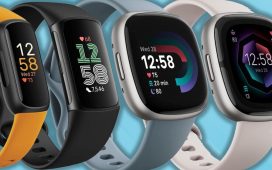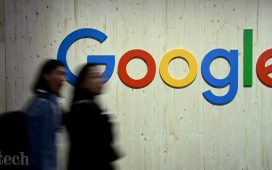Apple to switch to OLED displays for all iPhones
Apple will use organic light-emitting diode (OLED) displays for all iPhone models sold in 2025 and later, moving entirely away from liquid crystal displays (LCDs), Japan’s Nikkei newspaper reported, citing unnamed sources.
Television and smartphone makers are adopting OLED displays over LCDs for the former’s ability to deliver more vivid colours and sharper contrast, ideal for high-definition videos.But the planned move will exclude Japan’s Sharp and Japan Display from Apple’s handset business, Nikkei said. The two had a combined 70% share of iPhone displays about a decade ago but had supplied LCDs only and do not mass-produce OLED displays.
Apple has begun placing orders for OLED displays from China’s BOE Technology and South Korea’s LG, according to Nikkei.
US antitrust trial targets Google’s digital ad business
Google faces trial in a second antitrust case next week where the US Department of Justice will challenge how the search giant monetises advertising through a system that prosecutors say harms news publishers.
Discover the stories of your interest

The case comes just a month after a judge found that Google illegally monopolised online search. While that had focused on Google’s ubiquitous search engine, the upcoming trial will home in on less conspicuous technology that connects website publishers and advertisers. Those tools contributed to more than 75% of Google’s $307.4 billion revenue that came from advertising.
Regulators accuse Google of dominating the markets for the technology behind website ads by tying its tools for publishers and advertisers together, staking out a “privileged position as the middleman”. Google has denied the claims, saying it is not required to share technological advantages with rivals and that its products are interoperable with those offered by competitors.
Internet archive loses appeal over online lending library
When libraries across the US temporarily closed during the pandemic, the Internet Archive, an organisation that digitises and archives webpages and music, had the idea to make its library of scanned books free to read in an online database.
Question over its legality became a long-running saga that finally ended when a court affirmed that the Internet Archive violated copyright laws by redistributing books without a licencing agreement.
The decision is a victory for major book publishers that brought the lawsuit in 2020, and could set a precedent over the lawfulness of broader digital archives.
A final appeal could potentially be taken to the Supreme Court. In a statement, the Internet Archive said it was “reviewing the court’s opinion”. Pre-pandemic, the library utilised a system called “digital lending”, which allowed users to read scanned books one at a time. The Internet Archive threw out the viewing limits during the pandemic.
TikTok expands its ‘How to Vote’ resources ahead of US election
TikTok is pushing to improve information about the upcoming US presidential election, with new videos about media literacy and increased security requirements for verified accounts from politicians and governments. Vice-President Kamala Harris, former president Donald Trump and their vice-presidential nominees each have TikTok accounts, a sharp pivot from last year, when the vast majority of American politicians were avoiding the app.
The efforts come as TikTok warily acknowledges that it has become a much bigger news source for millions of Americans. It joins other major tech companies like Meta, Google and X that must regularly grapple with how their platforms handle election-related content.
But TikTok has an added layer of scrutiny, since it is owned by a Chinese company, ByteDance, and faces a looming possibility that it could be banned, based on national security concerns.









